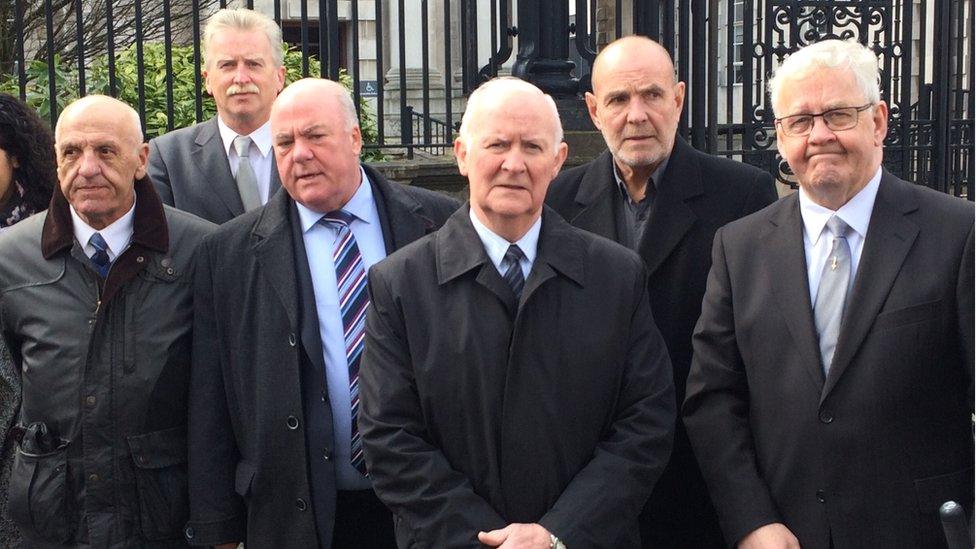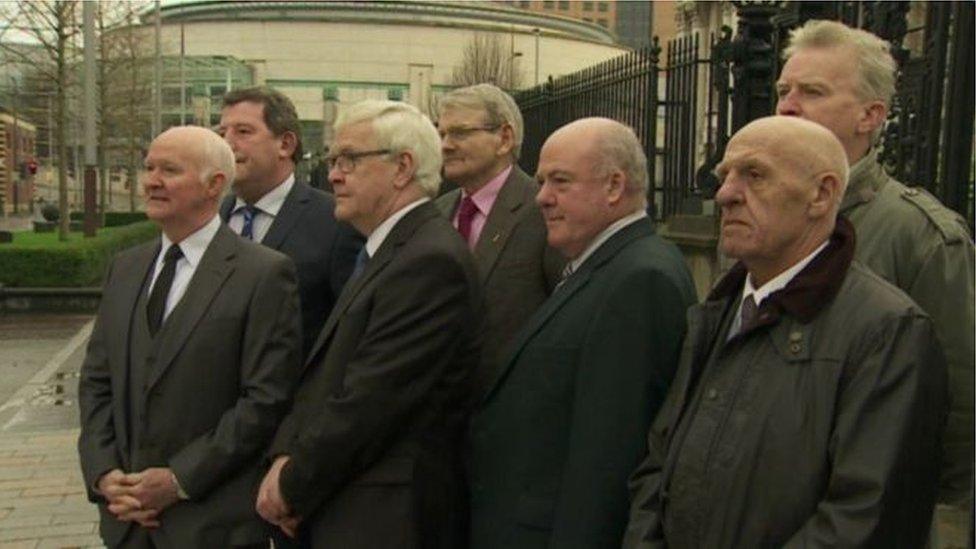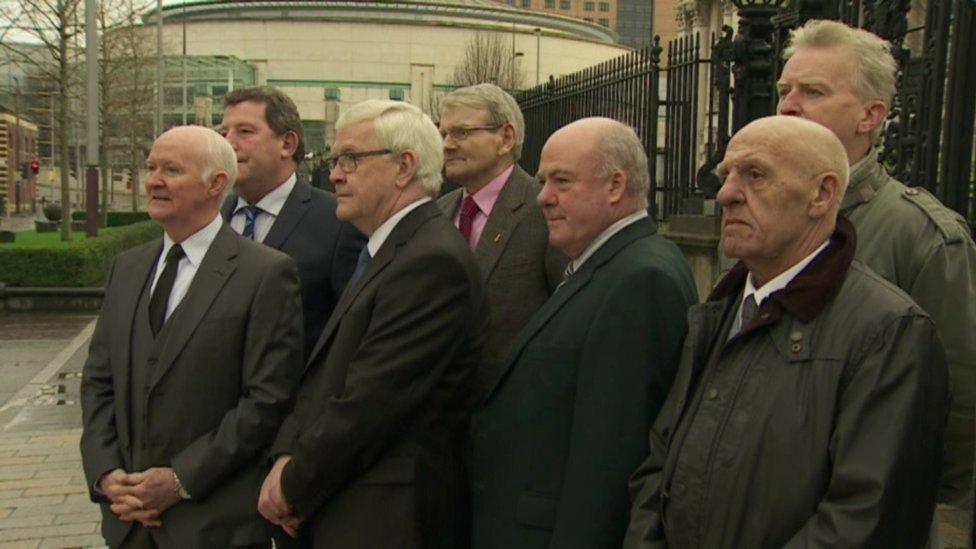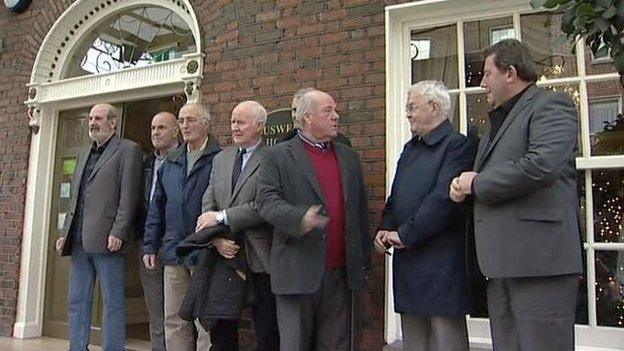Hooded Men: Villiers accused of withholding sensitive information
- Published

Some of the Hooded Men attended the court hearing in Belfast on Wednesday
The Northern Ireland secretary has been accused of withholding sensitive information in the case of a group known as the Hooded Men.
The men were interrogated by the Army in 1971. They allege this was torture.
Their lawyers claim Theresa Villiers has withheld information on briefings given to government ministers before the men were interrogated.
A lawyer representing the government said it believed it has disclosed all relevant documents.
The men want to know what ministers were told in advance about their interrogation. They have said they were subjected to prolonged torture, and that their treatment was sanctioned by the government.
They say they were hooded, forced to listen to constant loud static noise, deprived of sleep, food and water, forced to stand in a stress position, and beaten if they fell.
The group are taking legal action to challenge the failure of the police, Secretary of State Theresa Villiers, and the justice minister to investigate their allegations.
Relevant
Lawyers acting for the group have accused Ms Villiers of withholding documents needed for their legal challenge.
At a court hearing in Belfast on Wednesday, a lawyer representing the secretary of state said the government believes it has disclosed all of the documents relevant to the case.

Mr Mackin said it was essential for the men to know precisely what government ministers knew before they were arrested and interrogated
But a solicitor acting for the men disagreed.
Darragh Mackin said information provided by Ms Villiers made it clear that some documents about briefings ministers were given before the interrogations took place had not been disclosed to their legal team.
"The applicants in this case view this material as extremely relevant," he told the court.
Speaking to the BBC afterwards, Mr Mackin said it was essential for the men to know precisely what government ministers knew before they were arrested and interrogated.
'Torture'
"The one issue that is not clear at present is what the content of the briefings were, and therefore it's important to determine what actually was authorised, what they actually knew when they did authorise the techniques," he said.
"Because it's clear that what they did authorise was torture."
The judge, Mr Justice Maguire, urged both sides to try to resolve the dispute, and warned that he would adjudicate if they could not do so.
The legal team representing the group of men have been given two weeks to write to the secretary of state setting out what material they say has not been disclosed, and why it is relevant to their case.
If they are not happy with her response, they will go back to court to seek an order instructing the secretary of state to hand the material over.
- Published18 March 2016

- Published6 January 2016

- Published4 June 2015

- Published2 December 2014

- Published9 February 2015
